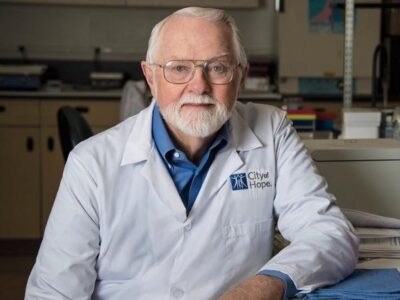After nearly five years in the federal government—at both NCI and FDA—Ned Sharpless is stepping down from his position as NCI director.
Chemotherapy at Ukraine’s National Cancer Institute in Kyiv no longer has to be administered in underground bomb shelters.
Last week, I became obsessed with reports that Vladimir Putin is a believer in an unproven remedy that involves bathing in blood drained from the horns of Siberian red deer.
Arthur D. Riggs, the diabetes expert who developed the technology that led to the first human synthetic insulin for the treatment of diabetes, died March 23 at age 82 after battling cancer. A biotechnology pioneer and a longtime leader at City of Hope, Riggs served as director emeritus of Beckman Research Institute of City of Hope... […]
The NCI Board of Scientific Advisors approved nine new and reissued concepts at a meeting held March 28-29.
Join the Cancer History Project April 20 at 7 p.m. EST for a panel moderated by Dr. Narjust Duma of Dana-Farber Cancer Institute. Four directors of NCI-designated cancer centers will discuss their unique perspectives as immigrants—and leaders in oncology. Topics will cover their unique pathways to leadership, diversity in medicine, and challenges faced by international medical graduates.
Cancer centers don’t usually ask NCI to increase their catchment areas. That’s because including more people and more square miles means increasing the responsibility to show impact.
In a move that appears to prioritize biomedical engineering over cancer research, President Joe Biden’s proposal for fiscal year 2023 cuts NCI funding by $199 million, a 2.9% percent cut from the current year’s level.
Worry not, because support for cancer research remains strong, NCI Director Ned Sharpless said, even as the institute stalls in its attempts to increase paylines in fiscal year 2022 and as the White House requests a nearly $200 million cutto the FY23 NCI budget.
The FY22 spending bill increases NCI’s budget by $159 million—but according to NCI officials, this boost isn’t sufficient to raise paylines for R01 grants for established and new investigators.















